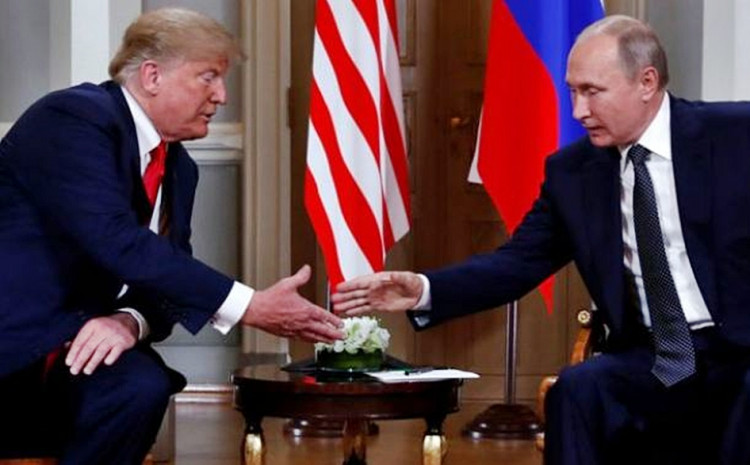As President-elect Donald Trump prepares to take office, experts have warned that any peace deal with Russian President Vladimir Putin over Ukraine could lead to disastrous consequences. Former US General Ben Hodges cautioned that trusting Putin could embolden future aggression, potentially escalating into a global conflict.
Hodges drew parallels between Trump's proposed negotiations and the 1938 Munich Agreement, where appeasing Adolf Hitler failed to prevent World War II. Tim Willasey-Wilsey, a senior fellow at the Royal United Services Institute (RUSI), echoed this concern, stating that allowing Russia to retain Ukrainian territory would provide a launchpad for further invasions.
"This is about their objective of destroying Ukraine as a state," Hodges said, as reported by The Sun. He stressed that a deal where Russia retains occupied regions would only serve to strengthen Putin's position for future offensives.
Experts also warned of Putin's potential to target NATO countries. Hodges described the risk of missile and cyberattacks on transportation infrastructure in Poland and Romania, which are vital for NATO's rapid reinforcement. "We should absolutely assume that Putin will launch missile strikes against not just Ukraine, but perhaps even NATO countries," he said.
Hybrid warfare tactics, such as exploiting ethnic tensions in Estonia's Narva or covert actions in Georgia, further highlight the broader threat. Willasey-Wilsey noted that Putin's strategies aim to destabilize Europe and exploit divisions within the West.
Russia's nuclear threats remain another pressing concern. Hodges criticized Western leaders for being "paralyzed with fear" of escalation, which has hindered decisive action. "Until you push back and make them pay the consequences for what they do, they're going to continue doing it," he said.
Hodges and Willasey-Wilsey emphasized that the West holds a strategic advantage, as Russia has suffered significant battlefield losses. They urged Trump to impose tough terms on Putin, ensuring Russia is confined within its borders. "If we're going to do a bargain, it's got to be a hard bargain," Willasey-Wilsey said.
The experts concluded that achieving a decisive Ukrainian victory, rather than a rushed settlement, is critical to preventing future conflicts and deterring further Russian aggression.
The message to Trump was clear: negotiating with Putin requires caution, vigilance, and a commitment to the broader strategic interests of the West. As Hodges put it, "He needs to say it is in our interests that Ukraine defeats Russia and that Putin is forced to live within his own borders."






